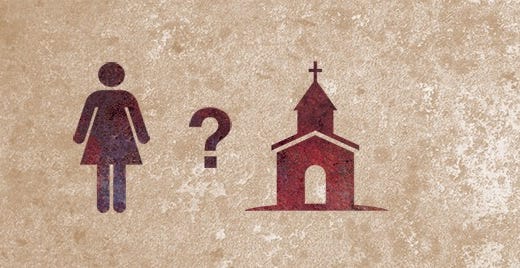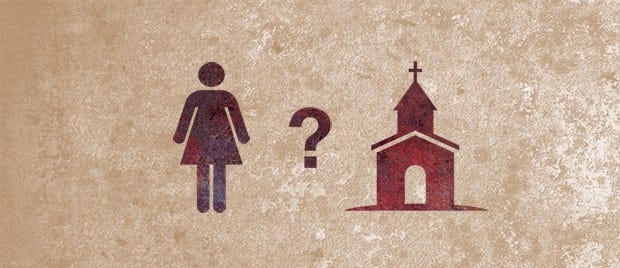The Southern Baptist Church is back in the news again for several reasons. The SBC recently came out against in vitro fertilization. The SBC also stated that it can oust churches that assert that women can serve as pastors.
And there’s this: In 2022, the church released a 205-page document naming hundreds of Baptist leaders and members accused or found guilty of the sexual abuse of children. The list, which included 700 entries, showed the convention’s leaders failed the public and their churches by mishandling sexual abuse cases and mistreating victims and survivors.
As a former member of the Southern Baptist Church, none of those things are surprising to me. All of these things represent the trauma the church inflicted on members.
I attended Baptist churches until my 20s. I am closing in on 50 now, and there’s something you should know about a lot of folks in my generation: we had trauma, and we didn’t have therapy or counseling. At least the folks I know didn’t. It wasn’t available, and besides, we just endured whatever we endured and we kept quiet about it — head down. Keep working and stay silent. Those words ring in the ears of those who suffered religious trauma.
The thing about religious trauma is that we didn’t even know it was trauma. Everyone I grew up with experienced the same emotionally bruising treatment at church. If it’s a universal experience, can it be trauma? I found out the answer to that question is yes. Most definitely, yes.
But religious trauma doesn’t always look like brimstone and hellfire. It’s not always the fear of rapture or sin. Sometimes, it’s as plain and ordinary as body shaming —mostly pointed at women and girls. And, I’m not necessarily talking about weight. It’s the shaming of the functions of women’s bodies.
Body shaming can be overwhelming when it’s institutionalized in church. Church and homelife are so intertwined in evangelical churches — we went to church once during the week and twice on Sunday. It was a major part of life.
The oddest thing about the churches I grew up in, and the adults I was raised around, was that bodily functions weren’t discussed. I know a lot of people will assume that we didn’t discuss sex in our churches, but the way bodies were discussed traveled into a lot of our homes. We didn’t talk about bodies unless we were shaming them. That logic was especially true about women and girls.
No one talked about periods or pooping. No one spoke about body hair or breasts. I just got the impression that the organs in the trunk of my body were nasty. I don’t think it was ever verbally expressed. It was just repressed.
I remember being constipated as a young child, but not telling anyone because I thought my body parts were dirty or somehow sexual, even though I didn’t know what sex was. I never spoke of any symptoms I suffered in “those parts” because I was ashamed of having those parts. I suffered from all kinds of ailments as a child that had a very simple treatment from the local drug store, but I kept quiet. I was dirty and didn’t want anyone to know.
How deep was the indoctrination on bodily functions? I grew up thinking the word “fart” was a cuss word.
When I was eight, I ran away from my dad’s house because I had been caught looking at something dirty. It was actually a “pin the tail on the donkey” picture I had found rolled up in a closet. My stepmom had painted it to be funny. The picture was the ass end of a donkey and each player would use their “tail” to cover up the hole.
*That stepmom was a break from the Southern Baptists. She was an artist and a free-spirit, and she didn’t last long in my world. She and my dad divorced within a few years.
As I was unrolling the pin the tail on the donkey picture, my dad walked into the room and I felt like I’d been caught looking at a nude portrait. I was so embarrassed that I had been caught, I decided to run away.
I didn’t have any shoes on, but I walked in my socks about 8 miles to my grandma’s house in Independence, MO. I planned to keep walking, but I was so thirsty that as soon as I got into her yard, I turned on the water hose to get a drink, and my grandma heard me. She came running out crying…my family thought I had been kidnapped.
It had taken me several hours to walk to my grandma’s house, and by the time I arrived, my socks were hanging on by threads around my ankles. I had blistered everything from my heels to my toes.
The police had also been looking for me as well. They asked me why I had run away. I was too embarrassed to tell them what I had been looking at, so I told them I just wanted to see my grandma.
It wasn’t just our bodies that were treated with disdain and disgust. It was normal activities. Wearing shorts or a bathing suit. Wearing too much makeup or clothing that was too tight or revealing. Having sex. Enjoying sex. Of course, those last two criteria were only applied to women. Shocking, I know.
I attended a private Christian boarding school my freshman year. Those of us who lived in-state stayed in the dorm through the week and went home every weekend. It was common for the local kids to take missionary kids, whose parents were in the field, home so they weren’t stuck in the dorms over the weekend.
One weekend, I went home with a classmate and a missionary kid her mom invited over. My classmate’s family were very stern Southern Baptists. They weren’t fun or light-hearted. I think laughing was sinful in their family.
I don’t remember what mischief we got up to that weekend, but I do remember looking at a magazine and talking about the cute boys on the front cover. The missionary kid had lived abroad and wasn’t as stuffy as we were — she said things that made us laugh and blush about the boys on the magazine's cover.
Whatever we did, either the laughing or the bawdy talk, resulted in a punishment for our classmate. Her dad came into the living room with a belt and took her into her room. We didn’t hear anything for a long while, and we decided to check on her.
When we opened the door, she was on her knees, in her long denim skirt, facing the window, buttoning up her shirt. I don’t know what happened, but that memory is seared into my brain. I imagine she received a few licks from the belt for our behavior.
Being ashamed of our bodies continued for many of us throughout our lives. Women in evangelical churches often don’t seek yearly exams because they are embarrassed of their bodies. No mammograms. No Paps. There were so many of us who didn’t visit a gynecologist until we were pregnant, which made becoming accidentally pregnant easy since the only way to get birth control was to visit the gynecologist.
Many girls, myself included, visited the health department as a teenager to receive birth control without our families finding out. We were constantly breaking the rules to take care of our bodies. Some of us were forbidden from using tampons. Some of us were shamed for having our period in the first place. It was always a challenge to hide pads and be quiet enough so no one would hear the sound of a pad being unwrapped. It still haunts me to this day.
I know the Southern Baptist church is not the only church where you can receive a heaping helping of religious trauma and shame, but I also know it persists.
Women and girls are second-class citizens in the eyes of the SBC. You know this is true because of the rampant abuse that is swept under the rug, the fact that women are not allowed to be pastors, and the adoption of an anti-in vitro stance. I don’t need to tell you what they think of abortion.
In the world of the SBC, women and girls have no right to their bodies and aren’t supposed to understand their bodies in the first place.
I left the church years ago, and since having daughters myself, I am more than happy to never darken the door of a Southern Baptist church again. The trauma…the shaming. I now have a voice, and I’m proud to use it to tell my story.
To shame them.
~Jess





Freedom from religion is a greatness not enough know.
I grew up Southern Baptist had to get a Ph.D. in theology and a lifetime of therapy to get beyond it. I know where of you speak. The pain is deep.